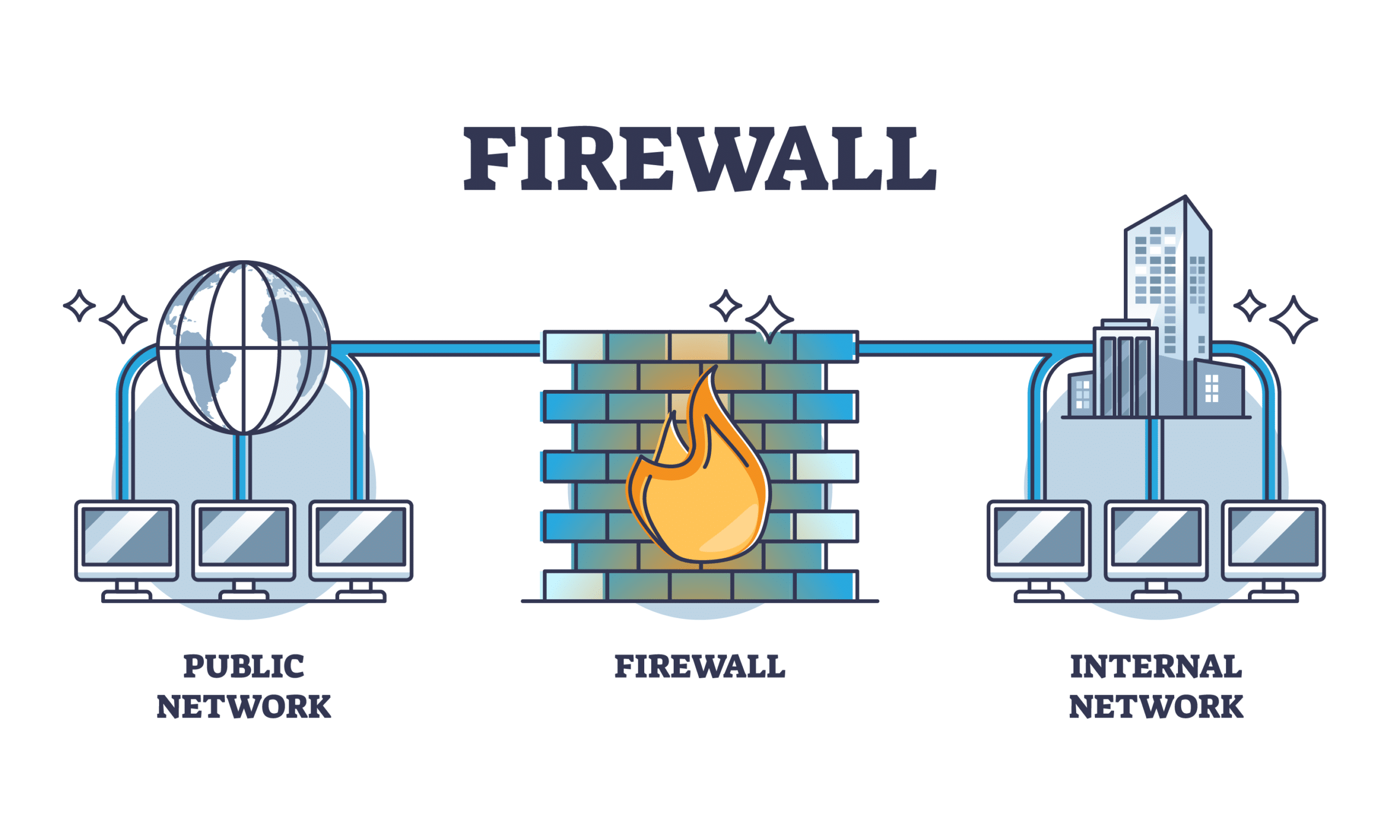In today’s hyper-connected world, cybersecurity is no longer optional — it’s essential. With threats ranging from opportunistic malware to targeted ransomware attacks, businesses of all sizes must ensure they have solid protections in place.
At the heart of any secure IT environment is a firewall. Often misunderstood and overlooked, firewalls are crucial in defending your network against unauthorised access, malicious traffic, and data breaches.
In this article, we explain what firewalls do, how they work, and why your business should take firewall security seriously.
What Is a Firewall?
A firewall is a security device — either physical (hardware) or virtual (software) — that monitors and controls incoming and outgoing network traffic based on defined rules.
Think of it as a digital security guard: it inspects every connection attempt and decides whether it should be allowed or blocked, based on criteria such as IP addresses, ports, protocols, or application types.
Types of Firewalls
There are several types of firewalls, each offering different levels of protection and control.
1. Packet-Filtering Firewalls
Basic, fast, and efficient. These inspect data packets at the network layer but don’t track ongoing connections or application data.
2. Stateful Inspection Firewalls
Also known as dynamic packet filtering. These monitor active connections and make decisions based on the context of the traffic.
3. Next-Generation Firewalls (NGFW)
These include features like deep packet inspection, intrusion prevention systems (IPS), and application-level filtering.
4. Web Application Firewalls (WAF)
Specialised firewalls that protect web applications from threats like SQL injection and cross-site scripting (XSS).
5. Cloud-Based Firewalls
Deployed in the cloud to secure distributed environments, such as SaaS platforms or hybrid cloud infrastructures.
Why Firewalls Matter for Business
A properly configured firewall offers:
- Protection from external attacks
- Control over internal network usage
- Prevention of data exfiltration
- Visibility into network activity
- Compliance with regulations such as GDPR or Cyber Essentials
In essence, firewalls enforce your security policy — whether you’re running a local shop, an online business, or managing a larger IT infrastructure.
Common Threats Firewalls Can Block
Firewalls can prevent a wide range of threats, including:
- Port scanning and brute-force attacks
- Unauthorized remote access attempts
- Malicious websites and IP addresses
- Phishing attempts targeting endpoints
- Command and control communications from infected machines
When combined with other layers of protection — such as antivirus, email filtering, and endpoint management — firewalls form part of a multi-layered security strategy.
Firewall Options for Small Businesses
At FYDUS IT Solutions, we recommend and deploy a range of firewall solutions depending on your needs:
- pfSense – An open source, enterprise-grade firewall used by many SMBs
- OPNsense – A modern, user-friendly firewall with strong security tools
- Unifi Security Gateway – Great for businesses already using Ubiquiti networking
- Fortinet or Sophos appliances – Hardware firewalls with premium features
- Cloudflare – A cloud-based reverse proxy/WAF for websites and online apps
We can also harden existing routers and implement VLANs or VPNs to isolate traffic and prevent lateral movement in case of breach.
How FYDUS IT Solutions Can Help
We specialise in designing and deploying secure network environments for small businesses. Our firewall services include:
- Firewall setup and configuration
- Threat monitoring and logging
- Secure remote access (VPN) configuration
- Port management and rule auditing
- On-premise or cloud-based firewall deployments
Whether you’re looking to secure your office, protect a remote workforce, or lock down a web server, we’ve got you covered.





